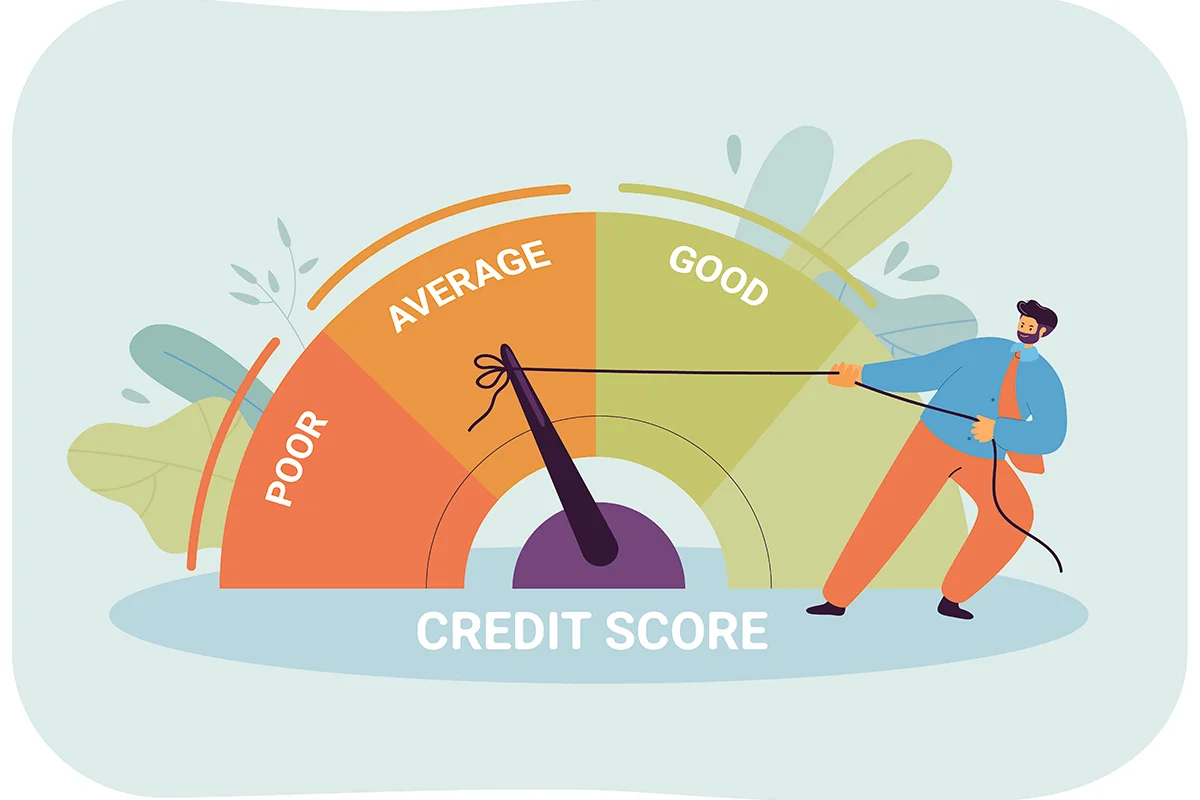Your credit score is more than just a number, it’s a financial passport that opens doors to loans, credit cards, and favorable interest rates. As the numerical reflection of your financial behavior, understanding how to enhance your credit score is pivotal for a secure financial future. Here’s your comprehensive guide to navigating the path towards a stellar credit score.
Understanding the Credit Score Basics
Before delving into the strategies, let’s grasp the fundamentals. Your credit score, often represented by CIBIL in India, is a numeric summary derived from a detailed report of your financial transactions. Ranging from 300 to 900, a higher score indicates better creditworthiness.
Common Reasons for a Low Credit Score
Several factors can contribute to a low credit score. Understanding these factors is essential to take corrective actions and improve your creditworthiness.
- Payment Delays and Missed Repayments: Late payments, whether on credit cards or other loans, significantly damage your credit score. Lenders view timely repayments as a sign of responsible financial behavior, and any delays in payments raise concerns about your ability to manage debt.
- High Credit Utilization Ratio: Credit utilization refers to the percentage of your available credit that you are currently using. A high credit utilization ratio, often considered above 30%, indicates a reliance on credit and can negatively impact your score.
- Frequent Credit Inquiries: Each time you apply for a loan or credit card, a hard inquiry is made on your credit report. While a single inquiry may not have a significant impact, multiple hard inquiries within a short period can lower your credit score.
- Absence of Credit History: Having no credit history can also lead to a low credit score. Lenders rely on your past credit behavior to assess your creditworthiness, and the absence of any credit history makes it difficult for them to make an informed decision.
- Unsecured Debt: Unsecured debt, such as credit cards and personal loans, is considered riskier by lenders compared to secured debt like car or home loans. A significant amount of unsecured debt can negatively impact your credit score.
Effective Strategies to Improve Your Credit Score
Improving your credit score requires a proactive approach and consistent financial discipline. Here are some practical strategies to enhance your creditworthiness:
- Ensure Timely Payments: Make all your credit card payments and loan installments on time and in full. This is the most crucial factor in improving your credit score.
- Set Up Automatic Payments: Utilize auto-debit features for your credit card and utility payments to avoid missing deadlines and incurring late fees.
- Maintain Low Credit Utilization: Keep your credit utilization ratio below 30%. This demonstrates your ability to manage your credit responsibly.
- Limit Credit Inquiries: Avoid applying for multiple loans or credit cards within a short period to minimize hard inquiries on your credit report.
- Build Credit History Responsibly: If you have no credit history, consider applying for a secured credit card or becoming an authorized user on a family member’s credit card with a good payment history.
Additional Tips for Credit Score Improvement
- Review Your Credit Report Regularly: Obtain your credit report from credit bureaus and check for any errors or discrepancies. Address any inaccuracies promptly to maintain an accurate credit history.
- Seek Debt Consolidation: If you have multiple high-interest unsecured debts, consider consolidating them into a single low-interest loan. This can reduce your monthly payments and improve your credit utilization ratio.
- Seek Professional Guidance: If you face challenges managing your credit, consider consulting a credit counselor for personalized advice and assistance.
Improving your credit score is a continuous process that requires discipline and financial responsibility. By following these strategies and adopting sound financial habits, you can gradually enhance your creditworthiness and open doors to better financial opportunities.
Keep watching our YouTube Channel ‘DNP INDIA’. Also, please subscribe and follow us on FACEBOOK, INSTAGRAM, and TWITTER.











